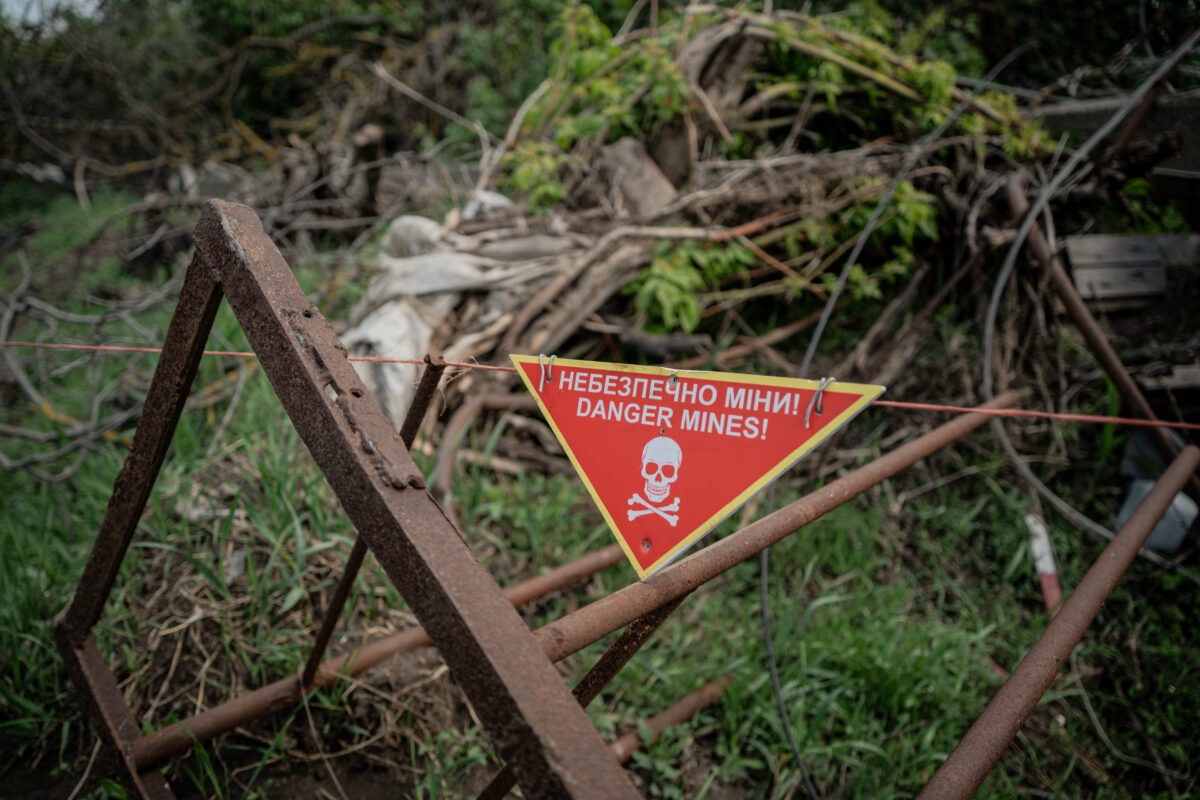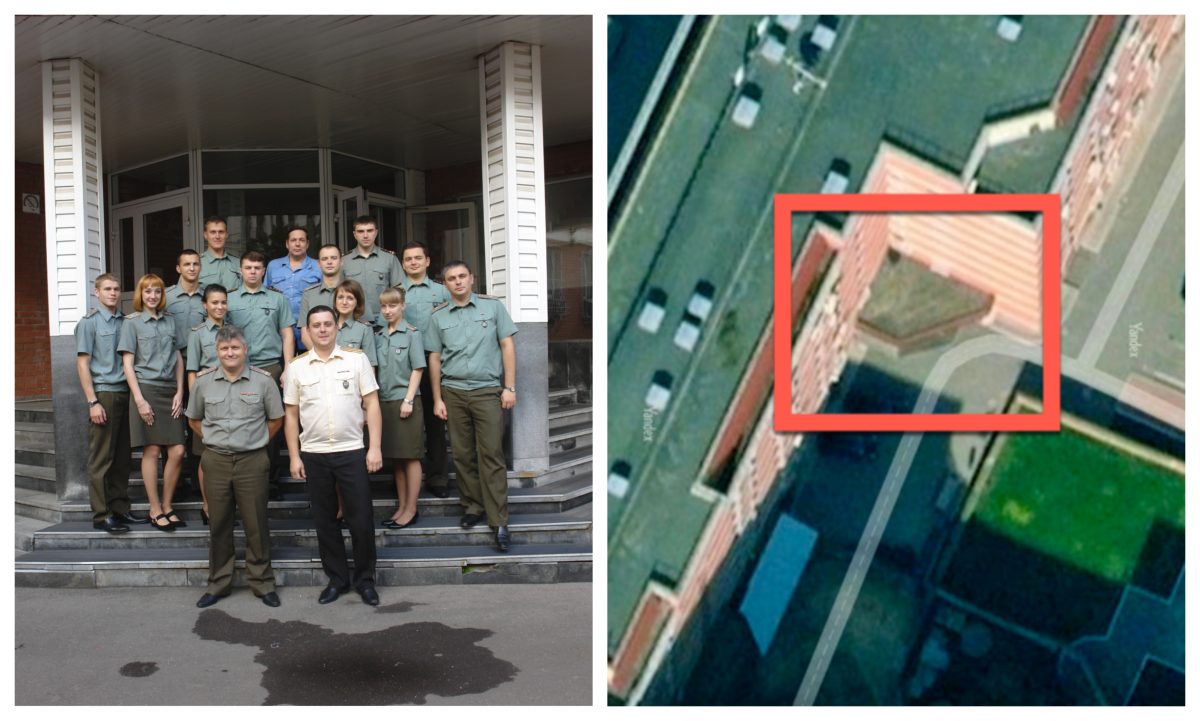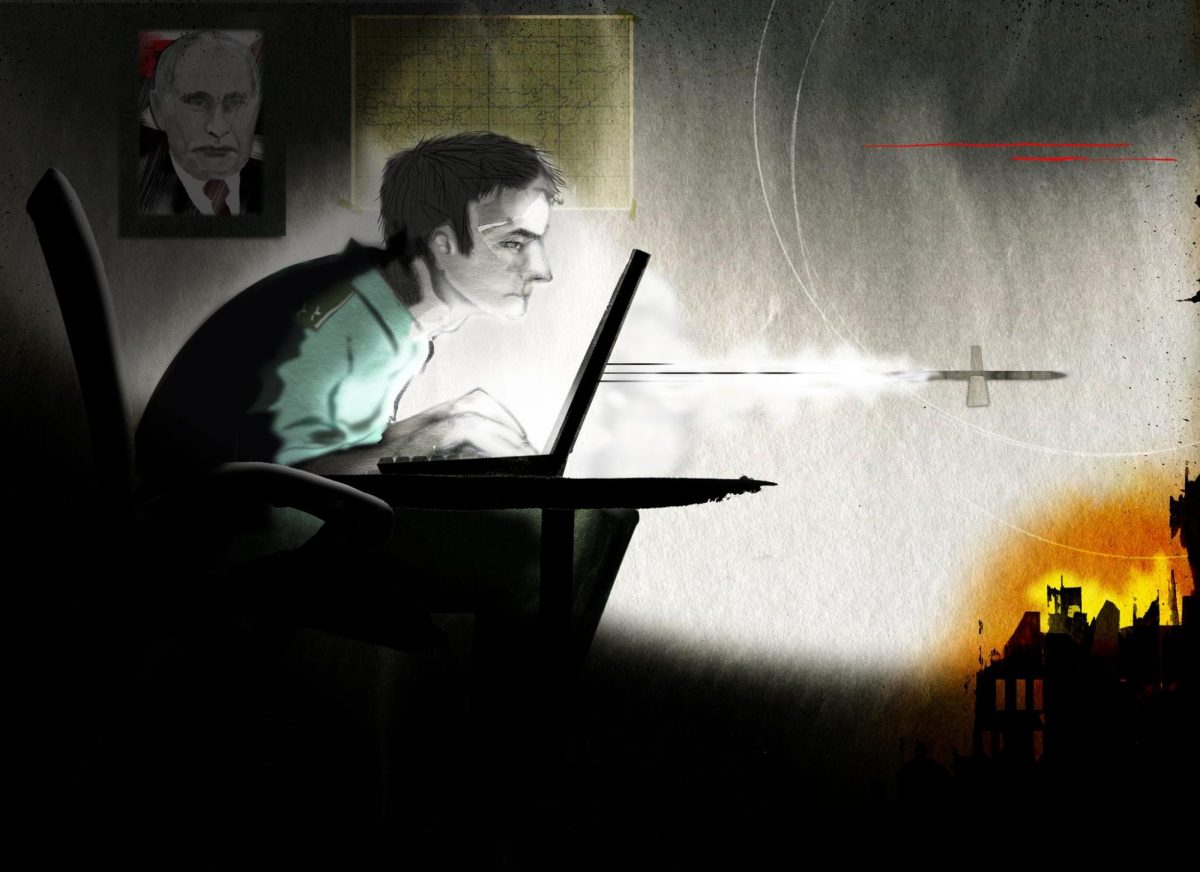Russia Seeks to Influence European Politics Through Youth Wings of Far-Right and Far-Left Parties
Evidence suggests the Kremlin is reaching out to youth organizations, including the youth wings of European parties in order to work on goals such as campaigning to lift EU sanctions against Russia. Other youth groups have been targeted to help boost Russia’s image abroad. While these tactics are reminiscent of Soviet efforts to win the hearts and minds of Western youth, Russia has shown a readiness to work with groups across the political spectrum. This includes working with both the far-right AfD and with the far-left World Federation of Democratic Youth to host a large youth gathering set for later this year.
The “Freedom for Europe” Conference
The day after Donald Trump’s inauguration, the “Freedom for Europe” conference was held in Germany. The conference was attended by the key European far-right leadership candidates like the Netherlands’ Gert Wilders, France’s Marine Le Pen and Frauke Petry of Germany’s AfD. Russia’s Izvestia provided some of the earliest coverage in the run up to the conference. Izvestia spoke to the leader of AfD’s Youth Wing, Markus Frohnmaier, recently married to a Russian journalist who has written articles for Izvestia on EU and German relations with Russia.
Izvestia suggested the main point of the conference was the “the creation of a road map for the Alliance of Eurosceptics for year 2017”.
But even though the conference was meant to have nothing to do with Russia, Frohnmaier’s connections hint at Russia’s developing relationship with far-right parties, and they show Russia is paying attention to coming elections throughout Europe.
Frohnmaier connections to Russia
Last December, Frohnmaier had a meeting with Konstantin Petrichenko, head of international links of Vladimir Putin’s party United Russia and leaders from the youth organisation United Youth Front. During the same trip, Frohnmeier also met with Anton Morozov, Russian member of parliament and part of its committee for international affairs. United Youth Front’s Ksenia Shlyamina wrote on her Facebook page that the meeting was about “perspective cooperation between Russia and Germany in terms of sanctions”.
On its website, the United Youth Front outlines its projects. One of these is titled “Europe: a new turn”. This is described as a campaign to have dialogue “between Russian politicians and representatives of youth wings of major European parties which campaign for the repeal of the sanctions against the Russian Federation”.
The United Youth Front describes itself as a “public movement” which “campaigns in support of the policies of the President of the Russian Federation Vladimir Putin”. Ksenia and her husband Nikolai Shlyamin, who both run the United Youth Front had a number of meetings with Frohnmaier over the past year. Last July, the couple attended a conference hosted by the AfD’s youth wing in Bingen Am Rhein, Germany. Shlyamina wrote one proposal from the conference was to “create a common security zone with Russia instead of NATO: from Lisbon to Vladivostok”.
Shlyamina has also mentioned that The United Youth Front and Frohnmaier “agreed on the development of the project Ya Papa throughout the whole of Europe!”. Ya Papa is described as a “social project” aiming to create a web portal and a number of clubs to assist young fathers. RT reported that Frohnmaier and others seemed interested in Russia’s approach to family values. “According to German eurosceptic members of parliament Russia is an example of family politics, while in Germany there are problems in this regard”. RT also announced that German Eurosceptic politicians agreed to translate the Ya papa site into English to make it accessible to Europeans.
But Russian officials have not limited their scope to Germany’s AfD, a similar methodology has been used with the Freedom Party of Austria (FPO). Last December, it was reported that Russia’s ruling party and the Austrian nationalists signed an agreement, pledging to work together on “youth, women, education, aid and other social organisations” with the aim of “strengthening the friendship and education of the young generation in the spirit of patriotism and joy of working”.
Along with members of the OMF, Frohnmaier also met the international secretary of the Young Guard of United Russia, Daria Sharova in December 2016 in Moscow. The Young Guard of United Russia has also been instrumental in fostering links with between Russia and foreign youth movements.

Right to left: Daria Shrove, Alexander Varlamov, Markus Frohnmaier, Nikolai Shlyamin, Konstantin Petrichenko, Ksenia Shlyamina, Yuliy Vinogradov
Sharova and other members of the Young Guard travelled to Belgrade in April 2016 and went to an event of the Serbian People’s Party, which has close ties to Russia and a Dveri event, Dveri being a nationalist party that enjoys support in Russian State media. One of the Russians that accompanied Sharova on the trip wrote that “youth projects” were on the agenda in Serbia.
Russian Influence over European Youth Groups
Serbia’s Dveri party has its own youth wing, led by Milan Milyutin. In 2014, a demonstration was held by Dveri where marchers held anti-NATO banners and pictures of Vladimir Putin. United Russia’s Young Guard covered the event on their website and included a statement from the head of Dveri’s Youth Wing.
Milyutin himself had attended a number of conferences hosted by DEMYC, which stands for Democratic Youth Community of Europe. Daria Sharova of the Young Guard of United Russia has also appeared at some of these conferences, including a December 2016 trip to Beirut and a July 2016 summer school in Graz, Austria.
DEMYC’s mission statement includes the creation of “permanent links to centre and centre-right parties all around the globe”, but it also appears linked to Kremlin policy goals. The Young Guard of United Russia hosted the “Honorary Chariman” of DEMYC, Antonio De Lucia, who visited Russia in December 2014 and met with both the head of the Young Guard and made a visit to the State Duma. De Lucia and the Chairman of the Young Guard “discussed plans of further international cooperation…[including] the crisis situation in Ukraine… De Lucia supported Russia’s position on this question”. It was also added that De Lucia “offered his help to support the positive image of Russia in the world community”.
The president of DEMYC, Javier Hurtado Mira, was an observer in Russia’s elections last year and spoke to RT, giving his positive impressions on Russia’s voting process and democracy. Mira and DEMYC have appeared at events alongside a number of centre-right groups in Europe and beyond, including the youth-wing of the Fidesz party, Fidelitas, the student wing of the Lebanese-forces party and the UK’s Conservative Party. Mira and De Lucia also appeared together at the European Parliament in December 2014.
Russian Officials Courting the Far Left
But as well as establishing contact with the European far-right and left centre youth groups, Russian officials have fostered a relationship with the far-left. In February 2016 Sergey Pospelov, a former head of the state-run Russian youth organisation, Rossmolodezh was at a meeting with Nicolas Papademetriou, president of the “World Federation of Democratic Youth”. The WFDY has been described as a continuation of the Soviet-era Young Communist International, which was affiliated with Comintern. In the mid 20th century WFDY was headed by Alexander Shelepin, who subsequently became the head of the KGB.
But while the Cold War might be long over, in 2015 the Russian State youth body Rosmolodezh launched a bid to host WFDY’s World festival of Youth and Students. The event is held every four years and 10 million rubles were granted by a Russian State linked fund to pay for a bid. The effort was successful and WFDY approved Russia’s proposal to hold 2017’s World Festival of Youth and Students in Sochi, which staged the last Olympic Winter Games.
The slogan of this year’s festival is in line with the communist associations of the gathering – “For Peace, Solidarity and Social Justice, we Struggle against Imperialism – Honoring our past, we build the future!!!”. The WFDY festivals revolve around states that welcome this kind of message. The previous festival, in 2013 was held in Ecuador while Pospelov and WFDY leadership convened in Caracas, Venezuala for a preparatory meeting in June last year.
Russia’s Rosmolodezh expects to attract up to 30, 000 festival participants this year. A Russian WFDY group summed up the event as being explicitly about far-left ideas and linked to the 100 year anniversary of the Russian Revolution: “In October of this year, on the eve of the centenary of the Great October revolution in the Russian city of Sochi will be hosted the XIX World Festival of Youth and Students, in which the Revolutionary Komsomol will actively participate together with foreign comrades”.
The revolutionary ethos of the Festival seems to have become of interest to Russian fringe politicians. In February of 2016, WFDY travelled to Russia. Pospelov and Papademetriou included Gennadiy Zyuganov, head of Russia’s Communist Party.
Pospelov and Papademetriou also pictured with the Russian far-right figure Zhirinovsky during the same trip. Another Russian official who met with WFDY during their trip to Russia was Olga Evko who previously worked for Rosmolodezh but is now employed by Rossotrudnitchestvo, Russia’s equivalent of USAID.
Olga Evko’s schedule over the past few years highlights the breadth of Russia’s activities with youth groups throughout Europe. In August 2014 Evko was at a meeting of RIM, Russian-Italian Youth in Rome. In April 2014 she was listed as one of the organisers of the Seliger Youth Forum and in August 2016 sat next to Javier Hurtado Mira of DEMYC at Iturup – the All-Russian Youth Education Forum.
Pictures of Evko at various event also lead to Russia’s efforts to have influence in the Netherlands. In September 2016 she appeared in a photo uploaded by Zurab Agirbov, who works at Rossotrudnitchestvo in the Netherlands.
Rossotrudnitchestvo and Dutch Youth
On of the most interesting things Agirbov took part in was in July 2014, when he was an organizer of a delegation of Dutch young people to Moscow. The conference was titled “Generation Next” and included presentations from representatives of the Young Guard of United Russia and representatives from Rosmolodezh and Rossotrudnitchestvo.
Discussion included “media coverage of political events…[and its] influence…in public opinion, particularly on youth” as well as ways to “decrease these manipulations and have more objective information”. One of the main topics was also the war in Ukraine, and an area of focus were “several project ideas discussed on the development of further contact and cooperation between Russian and Dutch Youth” as well the resolving problems of “disinformation” caused by “official media” and how “to fix the lack of information and build co-operation”.
After the trip, there was further discussion of co-operation on the Generation Next Facebook group, where there was talk of building a website and organising joint projects such as online debates. Zurab Agirbov replied in March 2015 to an inquiry about gaining outside funding with the message “I’ve addressed by Central Office with your idea and I am sure they will find the way to support this project” – which suggest Rosmolodezh were happy to foot the bill for further work.
The group of young people who took part in the Generation Next trip to Russia were also invited to a follow-up meeting at the Russian Embassy in the Hague in October 2014 – The meeting was organized by Erik Havenaar, the head of the Expertise Centre of the Russian Federation.

An image of the Russian Embassy in The Hague, where the Generation Next Facebook group organized a meeting
The Expertise Centre has a Facebook group that it generally uses to post pro-Kremlin propaganda. Its mission “is to promote a deeper understanding of Russian affairs in The Netherlands and Belgium”. They are also “cooperating with Rossotrudnichestvo and the Russian Embassy at many projects” and “are also the youth organisation of the Russian Embassy and Rossotrudnichestvo in The Netherlands for people who want to do something with Russia” and “have special programs for Dutch Hogescholen and Universitys to collaborate with Russian Universitys”.
Russia’s end goal
A Stratfor article on Russia’s youth groups published back in 2011 described how Russian groups began establishing some influence outside of their borders. It was also noted that “the Kremlin could use Russian youth groups to cooperate with other countries, and it would also have a presence in these other countries if Moscow believes aggression, rather than cooperation, is needed”.
In 2017 Russia’s outreach to the young-wings of foreign parties is no trivial matter, given the controversy over Russian interference in US elections. Serious concerns have already been expressed for the Kremlin’s support to “extremist, pro-Moscow candidates”. Russia’s focus on youth groups is therefore amplified in a key year for European elections and as evidence of Russian meddling in US and European politics continues to mount.



